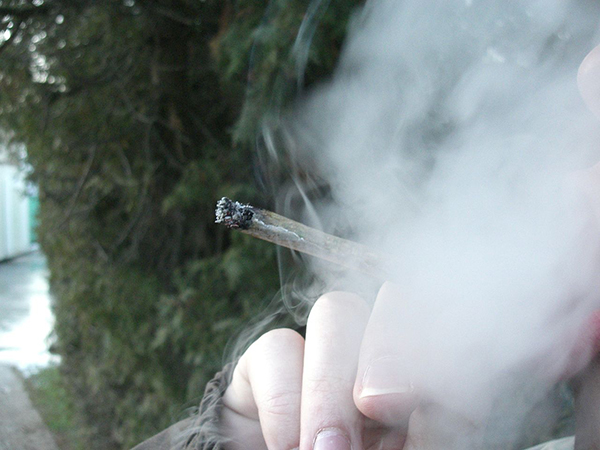
Prince Albert city council voted to cap the number of cannabis retail stores in Prince Albert at three, but critics argue the decision treats the cannabis business unfairly.
Prince Albert already has two retail cannabis stores within city limits. On Monday, council voted by a 6-1 margin to limit that number to three.
Mayor Greg Dionne said the decision gives Prince Albert’s elected officials more control over addictive substances coming into the community.
“We believe (for) anything that’s addicting that we should have more say,” Dionne said afterwards. “The province makes the rules and gives out the licences, but we end up paying the social cost.”
Dionne said Prince Albert police deal with crimes related to alcohol abuse on a daily basis, and he wants to make sure cannabis abuse doesn’t become a problem too. He said the provincial government has already offered to give Prince Albert up to five retail cannabis licences, but the City has refused.
He said limiting Prince Albert to three cannabis outlets won’t solve all the city’s problems, but it does give them more power over the problem.
“At least now we’re in control,” he said. “We weren’t in control. Now we are.”
Ward 2 Coun. Terra Lennox-Zepp was the lone city councillor to oppose the decision. She worried the cannabis industry was being unfairly targeted. Prince Albert has 10 liquor retail licences, but only two retail cannabis locations.
She also argued city council should not interfere with a lawful business enterprise, and that if the demand was there, retailers would simply setup shop in a nearby rural municipality.
“I would expect that if the market is there for more than three cannabis stores in our population, then it’s very possible that a business enterprise will open up outside of city limits,” she said during the meeting. “We’d lose that property tax revenue. We’d lose out on collateral business that you get by having these types of businesses open.”
When asked about whether cannabis was being unfairly targeted, Dionne said he’d gladly go back in time and limit Prince Albert to three retail alcohol stores too. City council has already asked the province for no more than 10 retail liquor outlets in Prince Albert. The City also recently denied an application for a new retail liquor store because it was too close to an already existing outlet.
“If we would have known how liquor would have affected our community and our province, we would have had different regulations,” Dionne said. “I don’t want to fall into that same trap where we all become addicted to the revenue from alcohol. Cannabis is new, so I believe this is the chance to try and get control so it does not end up costing the taxpayers of this city what the cost of alcohol is.”
“We want the residents of PA to have a say,” he added. “We don’t want (cannabis) to become another burden on our budget. The police budget’s big (because) of alcohol. It’s big.”
Prince Albert police arrested more than 2,600 people last year for public drunkenness alone.
Monday’s debate began following a motion from Ward 3 Coun. Evert Botha, which would have increased the minimum allowable distance between any cannabis store to 1,000 metres. That bylaw would also have applied to liquor stores.
Prince Albert already has regulations preventing cannabis retailers from setting up shop near schools and public parks, or within residential areas. This bylaw would have further restricted where cannabis could be sold.
The motion died on the floor for lack of a seconder, and Dionne proposed a new motion capping the number of cannabis stores in the city.
Although it wasn’t how he planned it, Botha said he was happy to see further restrictions placed on cannabis sales in the community. Like Dionne, he said there’s not a single day that goes by where police aren’t dealing with a crime or disturbance related to substance abuse. While he acknowledged that alcohol plays a larger role in those issues, he worried that cannabis use could pose a similar problem.
“The legal sale of cannabis in our community is still relatively new,” Botha said during the meeting. “I think we’re looking at two years or one-and-a-half years, and we don’t know how this landscape is going to end up.”
Botha added that the measures may also give cannabis retailers more time to establish their business. Federal and provincial laws restrict their ability to advertise and promote their products. Cannabis cannot be displayed in ways that showcase glamour, recreation, excitement, vitality, risk or daring, and company logos and promotional material can only be shown in areas where minors are not permitted.
“This is not about restricting residents of the City of Prince Albert from being able to purchase their wine, their beer, their spirits or their cannabis,” he said. “It’s about ensuring that our current liquor and our cannabis retailers can also continue to grow and thrive in our community, employ residents and pay them a decent living wage and work with city council and administration to betterment of the lives of our residents through responsibly business practices.”
City council considered creating a 1,000 metre buffer zone between cannabis stores when administration created the Prince Albert’s original cannabis bylaws. Council rejected that proposal at the time because it would have given retailers few options for setting up shop within city limits.

